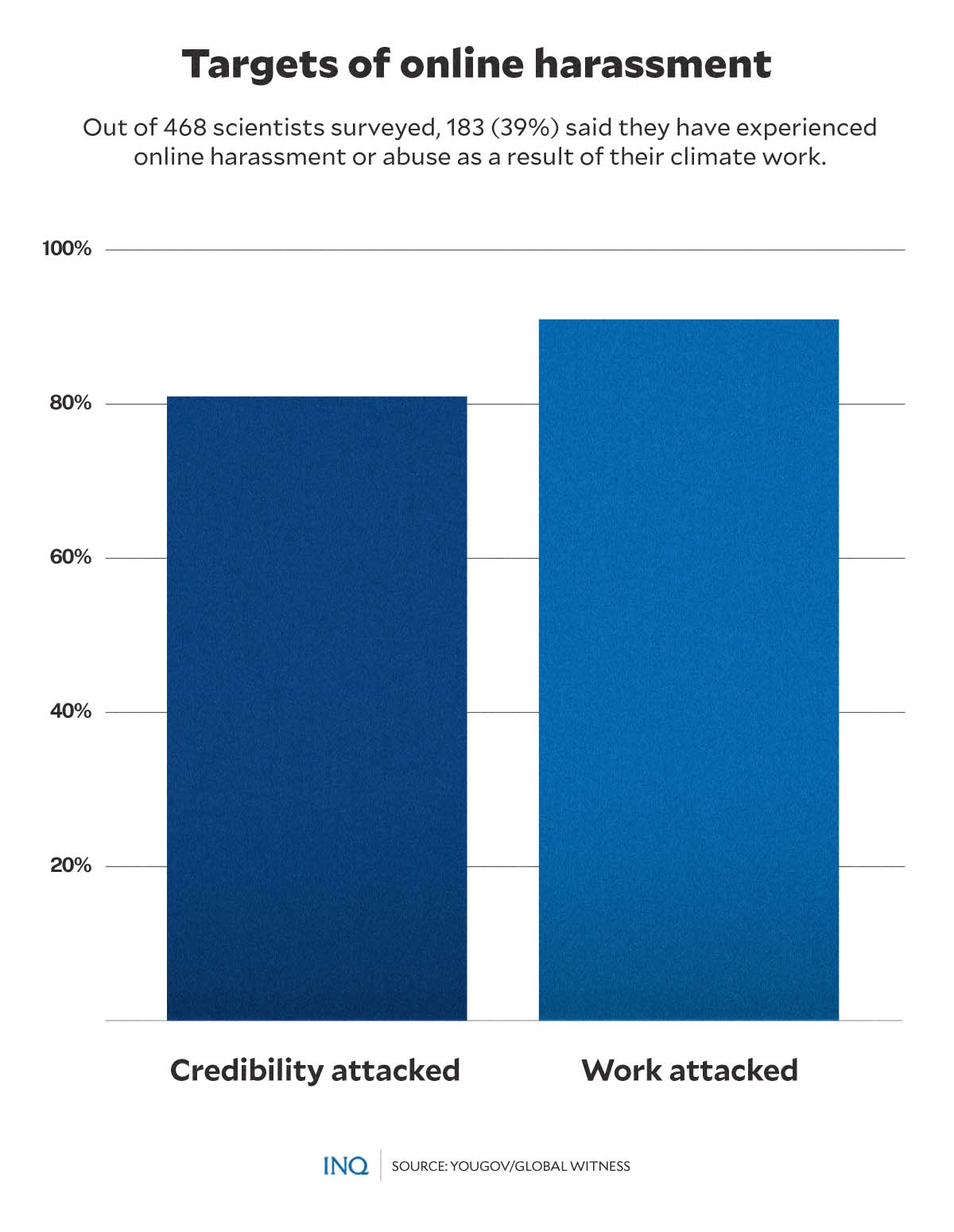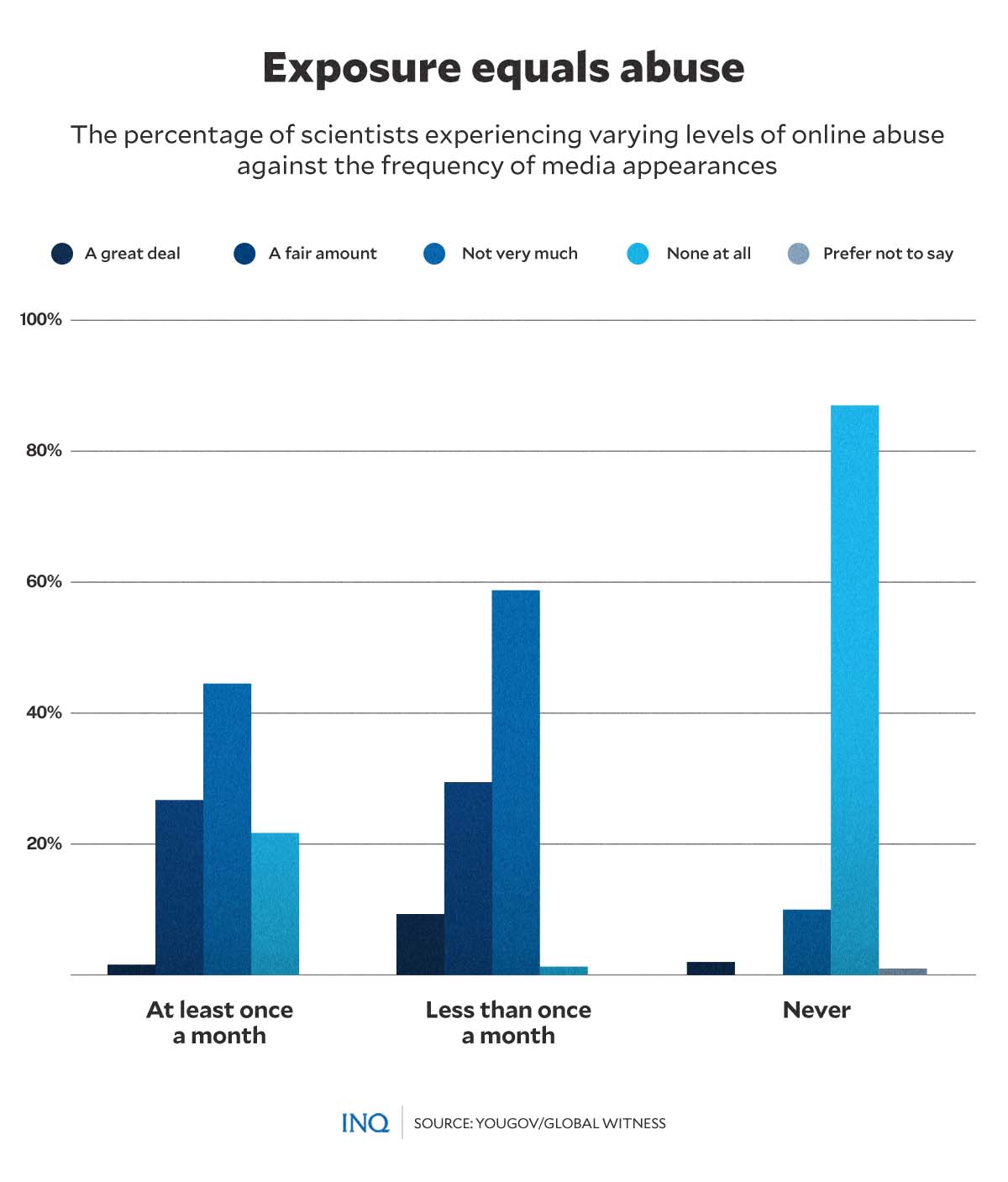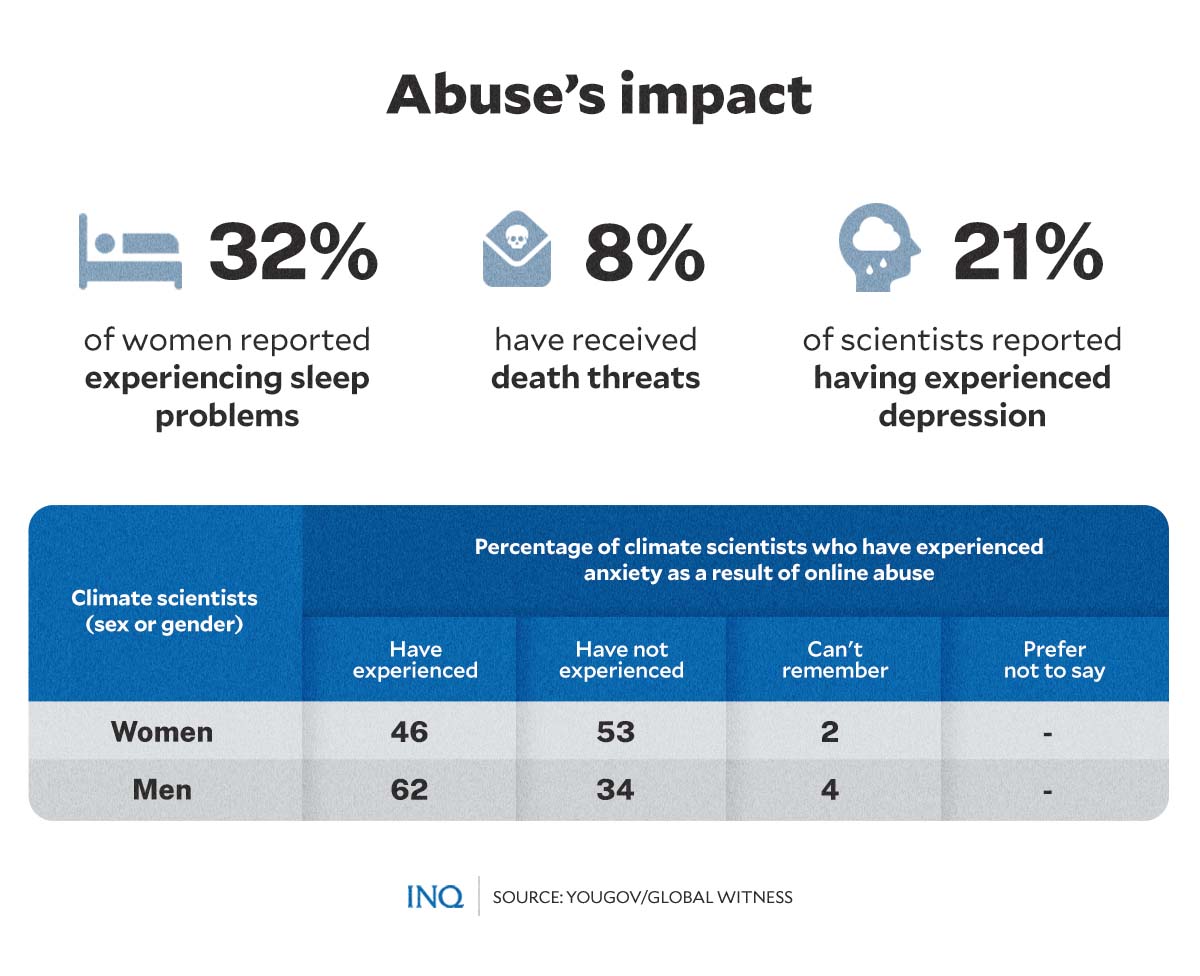Abuse, threats proliferate online vs climate scientists
MANILA, Philippines—Amid accelerating and worsening impacts of climate change, scientists have a duty to share study findings to boost climate action. However, rampant online abuse and harassment imperil climate scientists’ work and participation in public discourse.
“Imagine that you’ve spent years studying glacial retreat in the Arctic. You believe you have a duty to share your findings that reveal how our world is changing with a wider public,” international non-governmental organization Global Witness said.
“But you remember having trouble sleeping after getting hateful messages on Twitter the last time you published your work there, and the death threat your colleague received after talking about her work online. Do you hold off from posting?”
Those statements gave a glimpse of the extent of online abuse and harassment faced by climate scientists across the globe—and how these experiences dangerously impact their work, wellbeing, and safety.
A survey by Global Witness found that scientists around the world working on climate topics commonly experience online abuse, “and for many, takes a mental and physical toll that inhibits climate discourse.”
Article continues after this advertisementOut of 468 respondents, 39 percent—or 183 scientists—said they had experienced online harassment or abuse, which was attributed to their climate work.
Article continues after this advertisementAround 81 percent of them said they have had their credibility attacked, while 91 percent shared they have had their work attacked.
“I think there is also a cost to having to explain yourself like you are responsible for the issues of the world—there is a lot of pressure to not only do the work, but to do it under pressure and to explain it to all audiences and it isn’t a part of your identity you can leave behind on social media,” said a climate scientist who participated in the survey.
More public presence, more attacks
Survey results also suggest that the frequency of abuse and harassment could be related to both academic output and media exposure of climate scientists.
Scientists with over 10 academic publications were found to be more likely to have suffered a great deal of online abuse, compared to fellow climate scientists with fewer academic outputs.
Climate scientists who appeared in media at least once a month prior to the survey also said they have experienced a great deal (1.59 percent) or a fair amount (26.73 percent) of online abuse.
Global Witness also stressed that even among scientists who have never made any media appearances, 12 percent still reported that they have experienced online abuse.
Women suffer greater harassment, abuse
Alarmingly, climate scientists who identified as female, said that the level of harassment they receive does not only attack their work and credibility but also their personal characteristics.
“Their sex or gender was targeted a great deal or a fair amount for 34% of affected women and only 3% of affected men,” said Global Witness.
Female climate scientists were also found to be three times more likely to receive a great deal or a fair amount of harassment on the basis of their age (17 percent). Compared to their male counterparts, they have also received more threats of sexual violence (13 percent of affected women), and physical violence (19 percent).
Moreover, the survey discovered that at least 8 percent of women in the field have received death threats.
As a result, nearly a third (32 percent) of female climate scientists who have experienced online abuse reported sleep problems. More than a fifth (21 percent) of them have also been diagnosed with depression.
‘Chilling effect’ on scientists, everyone
The string of online attacks and abuse had caused a wide-range effect on climate scientists.
According to Global Witness, the particularly worrying impact of the harassment is the fear of damage to professional reputation—which has been reported by over half of the survey respondents.
The survey also detailed other distressing impacts of online abuse and harassment among climate scientists, including:
- anxiety caused by the abuse (51 percent);
- physical illness among women due to stress (21 percent);
- dreading work (more than a fifth of harassed scientists who finished the survey);
- loss of productivity (48 percent).
“These trends present concerns for the global ability to act on climate change. If scientists are unable to do their work because of stress and fear caused by harassment, the critical evidence that undergirds climate action and solutions is put at risk,” the organization stressed.
Online abuse that are directed at scientists also brings a possible “chilling effect” on public discourse related to the world’s current climate conditions.
Around 41 percent of the scientists who received online abuse said their experience has made them less likely to share their views on climate issues on social media. Still, 23 percent felt the opposite, saying that their experience had made them more likely to engage in public discourse online.
Global Witness said this suggests that “many scientists are determined to communicate climate topics on social media in spite of the risk they may receive harmful content.”
However, the organization emphasized: “It shouldn’t be like this: all climate scientists should feel able to share their work online, not just those prepared to deal with ensuing abuse.”
TSB
RELATED STORIES:
PH deadliest country in Asia for environment defenders – watchdog
Sex predation looms large for women health sector workers
Fighting sexual predators vs women in health sector an urgent task
‘The XX Paradox’: Women dominate health work, but denied leadership roles




